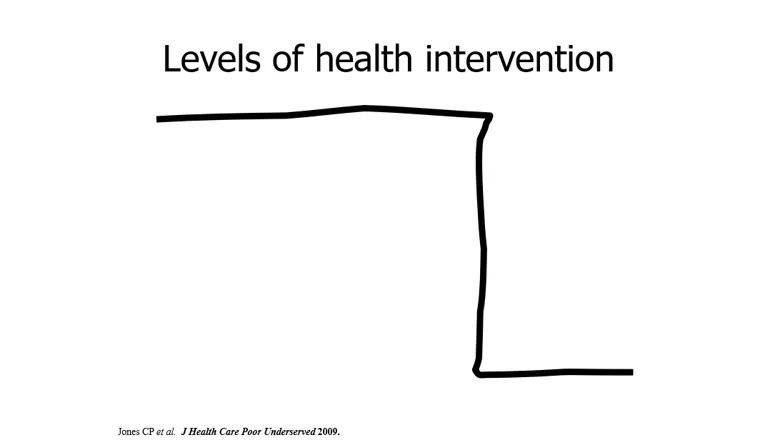Professor Camara Jones outlined the steps to addressing racial health disparities in the US and UK, at a recent lecture on anti-racism and health.

In the opening lecture of the Anti-Racism and Health series, Professor Camara Jones argued that acknowledging racism and its systemic nature was the first step to addressing racial health disparities in the US and UK.
Professor Jones, a Leverhulme Visiting Professor with the Department of Global Health & Social Medicine, offered two key allegories or "teaching stories" she has developed to enable conversations on addressing racial disparities and overcoming the challenge of racism denial.
She demonstrated how the "Cliff Analogy" could be used to assess policy interventions by analysing the recommendations of the March 2021 report by the UK Government's Commission on Race and Ethnic Disparities.
The "Cliff Analogy" illustrates how disparities in health outcomes arise due to differences in access to care, quality of care and social determinants of health (including poverty and adverse neighbourhood conditions).
Professor Jones argued that these disparities can only be addressed by paying attention to three dimensions of health intervention: health services, social determinants of health, and importantly, the social determinants of equity (systems of power such as racism, sexism and capitalism, which distribute resources differentially to communities).
She also demonstrated the "Dual Reality" allegory, which is intended to help initiate conversations about racism, particularly among members of privileged communities who are not aware of how systemic racism affects disadvantaged communities.
She advocates for people to be "anti-racism" instead of "anti-racist", since the problem is systemic and not about individual people.
This lecture was held at Science Gallery London and is the first of three lectures Professor Jones will be delivering as part of her visit at King's. The next lecture will focus on naming racism and the third lecture will focus on moving to action.






